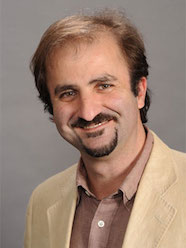Become a registered specialist orthodontist in New Zealand and Australia
What is orthodontics?
Orthodontics is an area of dentistry that prevents, diagnoses, and treats dentofacial growth anomalies, as well as misalignments of teeth and jaws.
A qualified specialist in orthodontics is able to manage a large variety of malocclusions including craniofacial syndromes, orthognathic surgery cases, and complex multidisciplinary cases.
DClinDent in Orthodontics
| Duration | 3 years full-time |
|---|---|
| Campus | Dunedin |
You will receive comprehensive training in orthodontics, with a broad evidence-based academic background, and a high-quality clinical experience with orthodontic patients under the guidance of expert supervisors in a safe and efficient work environment.
You will have the opportunity to familiarise yourself with many different orthodontic mechanics, philosophies, and treatment techniques including: straight wire, low-friction, segmented arch, and lingual mechanics, along with clear sequential aligners, and various functional appliances.
On completion of the course you will be eligible to register as a specialist orthodontist, with competency in treating a wide spectrum of simple and complex malocclusions.
The DClinDent in Orthodontics at the University of Otago has been developed to comply with international standards for a high-quality postgraduate education in orthodontics, which are described by the World Federation of Orthodontics (WFO), and endorsed in New Zealand and Australia.
Skills you will learn and develop
- Diagnose anomalies of growth of the craniofacial skeleton and the resulting discrepancies of jaw relationships and functional abnormalities
- Diagnose anomalies / abnormalities of the dentition
- Assess the need for orthodontic treatment for an individual patient
- Develop an appropriate treatment plan, including potential risks and complications, as well as any alternative treatment plan with the advantages and disadvantages of each treatment plan
- Demonstrate the ability to execute the treatment plan to the highest quality result obtainable
- Practice orthodontics according to standards of ethics
- Treat all types of malocclusion
- Understand interceptive orthodontic procedures and determine when they can be used for the benefit of the patient and the treatment outcome
- Understand orthognathic surgical procedures, when they are appropriate, how to coordinate the orthodontic requirements with surgical requirements, and the timing of treatment
- Evaluate the psycho-social aspects that may be relevant to orthodontic treatment
- Collaborate with other dental specialists in the orthodontic treatment of complex patients who may require interdisciplinary procedures
- Collaborate in the interdisciplinary treatment of medically compromised patients and patients with craniofacial anomalies or syndromes
- Formulate a research hypothesis, design and conduct an experiment to test its validity
- Organise, present, and publish research findings
- Understand, comprehensively review, and evaluate literature pertinent to orthodontics, and in other disciplines where relevant to the practice of orthodontics
- Continue to improve professional skills and lifelong learning by capitalising on the opportunities for professional development throughout your professional career
Staff expertise
Our staff have extensive expertise in both clinical practice and research. Our clinical supervisors are highly skilled in the management of complex malocclusions, including interdisciplinary and combined orthognathic-orthodontic treatment, and the care of patients with special needs or craniofacial anomalies, temporomandibular dysfunction, and sleep apnoea.
The high quality of research produced by the Discipline of Orthodontics at Otago is internationally regarded. Areas of research strength include:
- Clinical research
- Craniofacial biomechanics
- Mechanobiology of the periodontal ligament
- Biofilms in orthodontics
- Growth modification treatments
- Sleep disordered breathing
- Clinical oral physiology, including the function of the masticatory muscles and the temporomandibular joint
Important emerging lines of research include craniofacial genetics, carried out in conjunction with Genetics Otago, and craniofacial imaging in conjunction with the Department of Computer Science.
Professor Mauro Farella
 Professor Farella's research activities are mainly focused on the physiology and pathology of the masticatory muscles and on their relationship to orthodontics, craniofacial growth, and temporomandibular disorders. He is currently also involved in a number of randomised control clinical trials in orthodontics and in clinical gnathology.
Professor Farella's research activities are mainly focused on the physiology and pathology of the masticatory muscles and on their relationship to orthodontics, craniofacial growth, and temporomandibular disorders. He is currently also involved in a number of randomised control clinical trials in orthodontics and in clinical gnathology.
Professor Farella's research has been a mixture of activities carried out previously at the University of Zurich and new activities initiated at the Discipline of Orthodontics, University of Otago. In Switzerland, he was the principal investigator in a research project testing the hypothesis that stereotypic patterns of muscle contractions are at risk for the development of masticatory muscle pain. In Otago, he has continued his research in craniofacial musculature, but with a greater focus on orthodontic-related issues.
Professor Farella has started new collaborations with the School of Physiotherapy, with the Department of Psychology, and the Department of Radiology and has an ongoing collaboration overseas with the University of Zurich and the University of Naples Federico II.
Florence Bennani
Li Mei
Fiona Firth
Course content
Year 1
- CLDN 910 Research Evaluation and Design
- CLDN 920 Clinical Practice – Research Evidence
Years 2–3
- CLDN 9F Clinical and Thesis